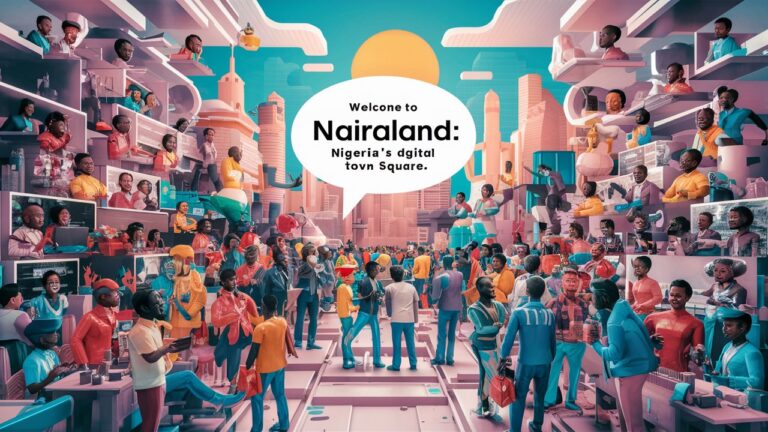Introduction
In the bustling landscape of African digital platforms, Nairaland stands out as a pioneering force. Launched in 2005 by Nigerian entrepreneur Seun Osewa, Nairaland has grown into the continent’s largest online forum, serving as a virtual meeting point for millions of Nigerians and Africans to discuss topics ranging from politics and technology to romance and career advice. This article explores Nairaland’s evolution, its unique features, societal impact, challenges, and future potential. Whether you’re a new user or a seasoned member, this guide unpacks why Nairaland remains a cornerstone of Nigeria’s internet culture.
1. The Origins and Growth of Nairaland
Nairaland’s journey began as a passion project by Seun Osewa, who envisioned a platform where Nigerians could freely exchange ideas. Starting with basic forum software, the site quickly gained traction due to its simplicity and focus on local content. By 2008, it had become one of the top 10 most visited websites in Nigeria, competing with global giants like Facebook and Google. Its organic growth was fueled by the lack of localized online spaces at the time, allowing users to discuss hyper-local issues—from fuel prices to Nollywood gossip—in a relatable context. Today, Nairaland boasts over 3 million registered users and millions of daily visitors, cementing its status as Africa’s largest online community.
2. Key Features That Define Nairaland’s Ecosystem
Nairaland’s structure is deceptively simple but highly functional. The platform is divided into categories such as Business, Technology, Family, Health, Education, and Entertainment, each hosting sub-forums for niche discussions. A standout feature is the “Front Page,” which aggregates trending threads, ensuring viral topics—like political scandals or celebrity drama—reach a broad audience. Unlike social media platforms, Nairaland emphasizes text-based discussions over visuals, fostering in-depth debates. The anonymous posting option also encourages candid conversations, though registered users enjoy privileges like creating threads and personalized profiles.
3. Nairaland’s Role in Shaping Nigerian Society
Beyond casual chatter, Nairaland has become a catalyst for social change. During elections, it transforms into a political battleground where users analyze policies and expose electoral fraud. Entrepreneurs leverage the “Business” section to promote startups, while job seekers scour the “Career” forum for opportunities. The platform has also birthed viral movements, such as crowdfunding campaigns for medical bills or disaster relief. Notably, Nairaland’s influence extends offline: media outlets often cite threads as sources, and policymakers occasionally engage with users to gauge public opinion.
4. Monetization and Sustainability: How Nairaland Stays Afloat
Despite its popularity, Nairaland’s revenue model is low-key. The platform relies on Google AdSense and sponsored posts by businesses targeting its massive audience. Unlike many forums, it avoids subscription fees or premium memberships, prioritizing accessibility. However, this approach has drawbacks: ads can clutter the interface, and the lack of diversified income streams raises questions about long-term sustainability. Critics argue that modernizing the platform—with features like in-app purchases or verified accounts—could enhance profitability without alienating users.
5. Challenges Facing Nairaland: Moderation, Misinformation, and Technical Limitations
Nairaland’s open-door policy comes with risks. Moderation is a persistent challenge, as volunteer moderators struggle to curb spam, hate speech, and cyberbullying. The anonymity feature, while empowering, also enables misinformation, with fake news often spreading faster than factual corrections. Additionally, the platform’s outdated design and occasional downtime frustrate users accustomed to sleek interfaces. Addressing these issues requires investment in AI moderation tools, UI upgrades, and fact-checking partnerships—steps that could strain its minimalist operational model.
6. The Future of Nairaland: Opportunities in a Competitive Digital Age
To remain relevant, Nairaland must adapt to shifting user expectations. Integrating mobile app functionality could improve accessibility for smartphone-dominated markets. Partnerships with educational institutions or government agencies might unlock new content verticals, while AI-driven personalization could enhance user experience. Furthermore, embracing multimedia content—like podcasts or live videos—might attract younger audiences. By balancing innovation with its grassroots ethos, Nairaland can continue to thrive as Nigeria’s digital town square.
Conclusion
Nairaland’s enduring success lies in its authenticity. It mirrors Nigeria’s diversity, chaos, and vibrancy, offering an uncensored space for dialogue. While challenges like misinformation and technical limitations loom, the platform’s community-driven spirit positions it to evolve without losing its soul. For Nigerians at home and abroad, Nairaland is more than a forum—it’s a cultural institution, a digital heirloom that continues to shape narratives in Africa’s most populous nation.
Frequently Asked Questions (FAQs)
Q1: Who founded Nairaland, and when?
A: Nairaland was created by Nigerian entrepreneur Seun Osewa in March 2005.
Q2: Is Nairaland free to use?
A: Yes, the platform is entirely free, though it generates revenue through ads and sponsored content.
Q3: How does Nairaland handle misinformation?
A: Moderators and users often debunk false claims in threads, but the platform lacks systematic fact-checking tools.
Q4: Can businesses advertise on Nairaland?
A: Yes, companies can pay to promote threads or display banner ads.
Q5: Why is Nairaland so popular despite its basic design?
A: Its focus on local relevance, anonymity, and diverse discussions outweigh aesthetic limitations for most users.
